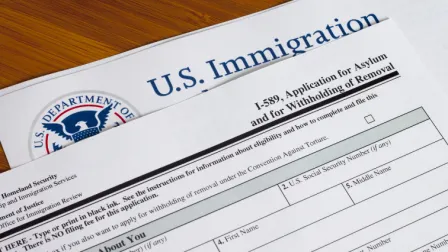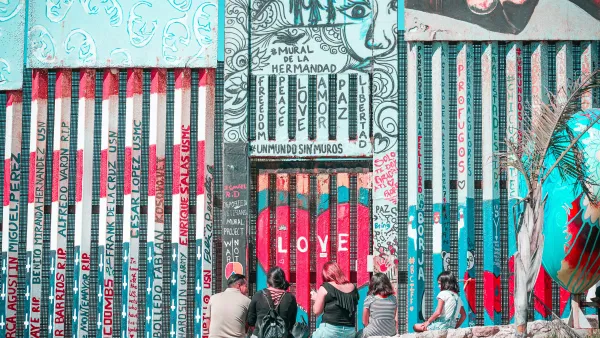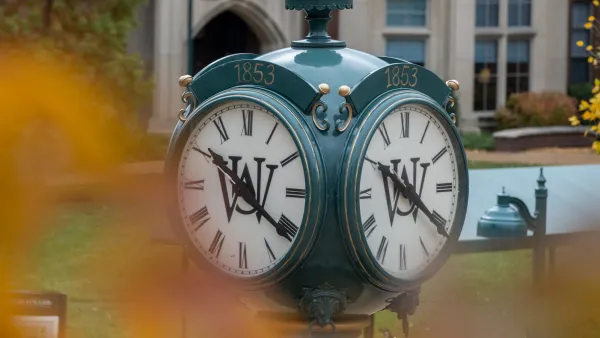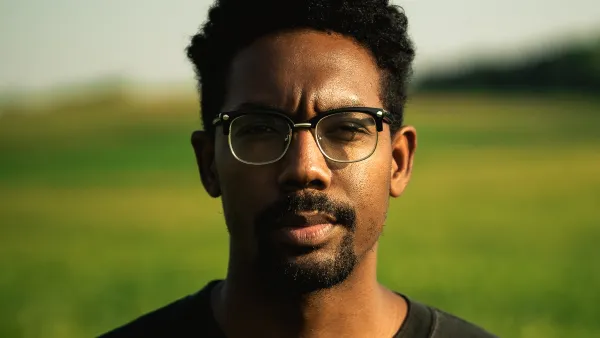Tabea Linhard is professor of Spanish and comparative literature and director of the Program in Global Studies.
If I were to pinpoint the exact moment when it became clear to me that I needed to learn about the laws that govern the lives of forcibly displaced individuals, it was in 2017, when I began volunteering for local organizations that support Spanish-speaking migrants in the St. Louis region. By then, I had been studying migration for almost two decades. When I was a PhD student in the late 1990s, new narratives about migrant experiences in Spain sparked my curiosity. Years later, my research projects and teaching endeavors led me to the experiences of refugees in the 1930s and 1940s, as I studied their complicated and often torturous trajectories between Europe, North Africa and the Americas. And when in 2017 I found myself translating, in the broad sense of the term, migrants’ experience so that they could fill out I-589, the form used to apply for Asylum and for Withholding of Removal, the intersections between humanistic inquiry and the law became evident to me. Even more evident was that I still had a lot to learn if I ever was to develop new courses for doctoral students interested in careers that involve researching and writing about migration within the academy and beyond.

Receiving the RDE Cross-Training Grant enabled me to further pursue this endeavor, even though the year I was awarded the grant, 2020, brought with it its share of complications. A course on “Refugees and Forced Migration” (Centre for Refugee Studies, York University) I had hoped to attend was canceled. However, the blessings (and curses) of Zoom gatherings still made it possible for me to be part of several related conferences and presentations, now held remotely. Some of these, unsurprisingly, focused on the effect of the pandemic on forcibly displaced individuals. Yet the highlight of the grant period was the opportunity to audit “Immigration Law & Policy” at the Washington University School of Law, taught by Katie Herbert Meyer, associate professor of practice and director of the Immigration Law Clinic, in the fall of 2020.
The course content was illuminating, and my newly gained understanding of the legal side of the migrant experience has made its way into my courses. Moreover, the opportunity to audit the course provided an added value. In class, the professor regular asked us to work collectively on “Questions” and “Problems” from Stephen Legomsky and David B. Thronson’s Immigration and Refugee Law and Policy. The first few times I found myself in a breakout room with my much younger classmates I felt that I should be silent (not an easy thing for a professor) and let the actual students do the talking. As the weeks went by, I remained quiet for a different reason: Almost always, the answer I had had in mind turned out to be incorrect.
Nevertheless, as the semester progressed, I did decide to participate more in the group discussions, usually with the same result: My answers and solutions to the questions and problems were wrong, almost all the time. I was the weakest link in every single breakout room. To be clear, the responsibility for this was entirely my own — Katie Meyer is an outstanding instructor. Though my ineptitude bothered me, it forced me to work harder, to become a more thorough reader, to retrain my brain. By the end of the semester, I had gained a better and more nuanced understanding of how migration law operates, unlocking a practical new type of knowledge that I can transmit to students interested in careers where that is important. But an unexpected, and greatly welcome, outcome was that being the weakest link sometimes can be a far better learning experience than being good at something.
Headline image of Tijuana, Baja California, Mexico by Barbara Zandoval via Unsplash




